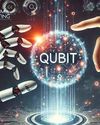
In a freewheeling chat with OSFY's Yashaswini Razdan, he speaks about the need for fundamental skills such as knowledge of a basic programming language, networking and automation to build a career in DevOps.
Q. What are the career options available for a software engineer in domains where open source is important and useful?
A. There are plenty of opportunities in DevOps such as the DevOps pipeline in SaaS companies or quality engineering (QE)/quality assurance (QA) and automation. Most of the SaaS companies are built on top of some cloud vendors with a strong pipeline, which is completely automated. No one does everything manually because as a SaaS provider, scale is important. So, if you have DevOps skills, you should get the opportunity to work for companies who are on the SaaS background in their DevOps pipeline. When it comes to QA and automation for software or hardware products, most test cases are automated for any test team. As a DevOps engineer, you can build that skillset as you already know programming to automate things.
Q. Apart from DevOps, are there any other roles that software engineers can aspire for where open source plays an important role?
A. Yes, there are. Consider MLOps, a subdivision of DevOps tailored for machine learning products. If you’re interested in machine learning and have a DevOps background, you can transition into MLOps roles, leveraging your understanding of automation and containerisation. MLOps is a set of practices that automate and simplify machine learning (ML) workflows and deployments. This transition offers opportunities to move from manual testing to automation and from DevOps to MLOps engineering. With open source tools like Kubernetes and Docker, you can build pipelines for machine learning models, creating datasets, training, testing, and deploying models efficiently.
This story is from the July 2024 edition of Open Source For You.
Start your 7-day Magzter GOLD free trial to access thousands of curated premium stories, and 9,000+ magazines and newspapers.
Already a subscriber ? Sign In
This story is from the July 2024 edition of Open Source For You.
Start your 7-day Magzter GOLD free trial to access thousands of curated premium stories, and 9,000+ magazines and newspapers.
Already a subscriber? Sign In

Amazon Bedrock: A Boon for the Financial Services Industry
Amazon Bedrock is a fully managed service that provides access to foundation models from top AI providers, enabling organisations to build and scale generative AI applications. It is specifically designed to bring AI solutions to the financial sector. Let's explore all that it can do...

Quantum-Safe VPNs: The Future of Secure Communication
As quantum computing continues to advance, it poses a significant threat to traditional cryptographic algorithms that secure our digital communications. Virtual private networks (VPNs), which rely heavily on encryption, are particularly vulnerable. Quantum-safe VPNs utilise post-quantum cryptographic algorithms to protect against quantum attacks.

Popular Open Source Toolkits for Quantum Machine Learning
Quantum machine learning is becoming increasingly popular due to its ability to solve the complex problems of the AI age. Here are a few open source libraries and frameworks that help with quantum computations.

Quantum Computing: Harnessing Open Source for Innovation and Accessibility
We explore how open source initiatives are shaping the future of quantum computing, making it more accessible and driving innovation through collaboration.

How Quantum Computing Differs from Classical Computing
Despite being in its infancy, quantum computing has numerous potential applications in modelling, cybersecurity, AI/ML, and other fields. But how do quantum and classical computing compare with each other? Let's find out...

From Bits to Qubits: The Growth Story of Quantum Computing
Quantum computing may still be in the early stages of evolution, but its potential impact on everyday life is significant. We delve into the key concepts behind it, the reasons for its rapid growth, and how global advancements are shaping its future.

Pytket: A Comprehensive Guide to Quantum Circuit Design
Pytket stands out as a powerful toolkit in the realm of quantum computing, offering a suite of features that cater to both researchers and industry practitioners. Its key strengths include optimisation, platform-agnostic support, flexible quantum circuit design and hybrid algorithm support. These features make Pytket a versatile tool for various quantum computing applications, from machine learning and cryptography to optimisation problems in industrial settings.

Cirq: The Open Source Framework for Programming Quantum Computers
Explore the key features, capabilities, and impact of Cirq, an open source quantum computing framework developed by Google, on the quantum programming landscape.

The Role of Open Source in Accelerating Quantum AI
Here's an overview of how open source frameworks are being utilised to build quantum machine learning models, including quantum neural networks and quantum kernel methods. The challenges and future directions in the quantum AI landscape are also discussed.

Quantum Machine Learning: An Overview
Quantum machine learning (QML) is a burgeoning field at the intersection of quantum computing and artificial intelligence. In recent years, the integration of quantum mechanics with machine learning algorithms has sparked substantial interest among researchers and technologists alike. Here's a quick look at the essentials of creating quantum algorithms for AI models, their practical use cases on open source platforms, and best practices for implementing these advanced algorithms.